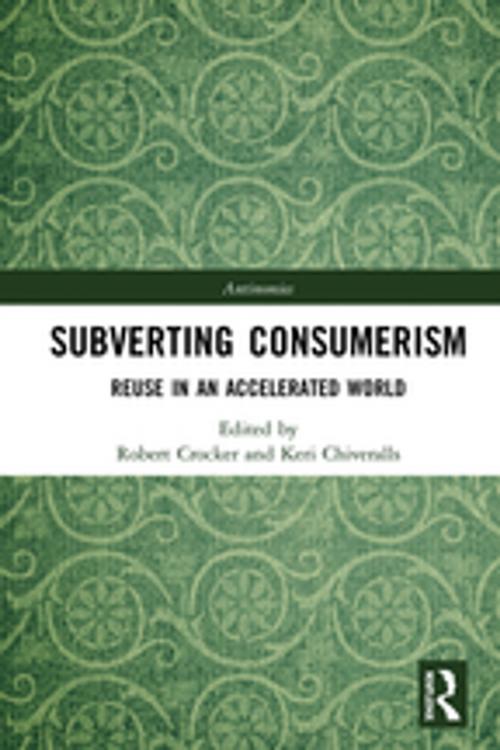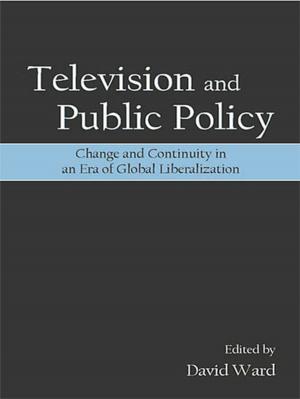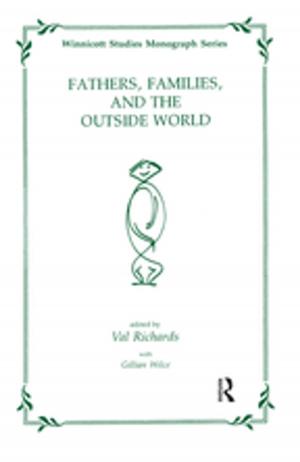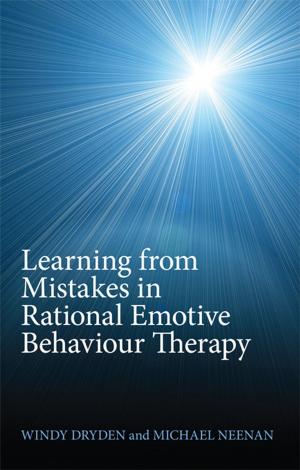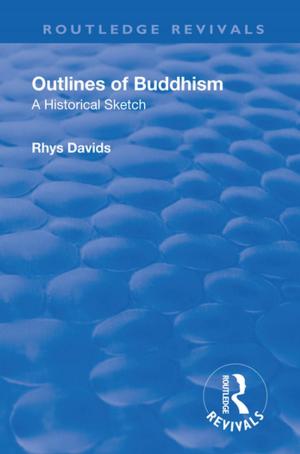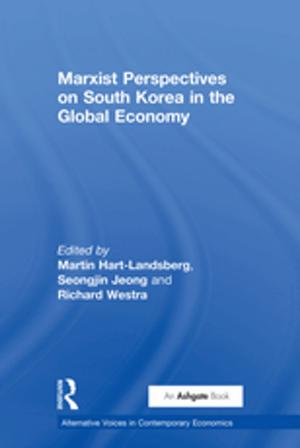Subverting Consumerism
Reuse in an Accelerated World
Nonfiction, Social & Cultural Studies, Social Science, Sociology| Author: | ISBN: | 9781317281139 | |
| Publisher: | Taylor and Francis | Publication: | July 24, 2018 |
| Imprint: | Routledge | Language: | English |
| Author: | |
| ISBN: | 9781317281139 |
| Publisher: | Taylor and Francis |
| Publication: | July 24, 2018 |
| Imprint: | Routledge |
| Language: | English |
There is now a widespread interest in reuse in many domains, from opera houses built over old warehouses, to vintage clothes and everyday goods incorporating repurposed materials or parts. Despite its ubiquity, this extensive creative work is typically seen in narrowly environmental terms, as a means of reducing carbon, resource use or waste. However, as this volume shows, reuse also has aesthetic and cultural dimensions and a rich social currency, invoked to consciously subvert the accelerated consumer culture responsible for our unfolding environmental crisis.
In three parts, the essays in this book consider reuse in terms of values, aesthetics and meaning, its application in contemporary urban and spatial settings, and the revival of social practices involving a more conscious recourse to reuse and repair. These are bookended by the editors' essays: the first, on the significant relationship between reuse and technological and social acceleration evident in the surrounding consumer society; and the last, on the multiple forms of reuse deployed in a contemporary alternative building practice, and their contributions to presenting alternative ways of living in the world.
Challenging dominant understandings of ‘waste’ and ‘consumption’, Subverting Consumerism shows how reuse has become a means for many to creatively engage with the past, and to discover a continuity and sense of place eroded by the accelerative regimes of contemporary consumerism. Becoming a means of resistance, and offering a range of aesthetic, social and economic possibilities, reuse can be found to subvert and challenge the obsessive quest for the new found in contemporary consumerism.
There is now a widespread interest in reuse in many domains, from opera houses built over old warehouses, to vintage clothes and everyday goods incorporating repurposed materials or parts. Despite its ubiquity, this extensive creative work is typically seen in narrowly environmental terms, as a means of reducing carbon, resource use or waste. However, as this volume shows, reuse also has aesthetic and cultural dimensions and a rich social currency, invoked to consciously subvert the accelerated consumer culture responsible for our unfolding environmental crisis.
In three parts, the essays in this book consider reuse in terms of values, aesthetics and meaning, its application in contemporary urban and spatial settings, and the revival of social practices involving a more conscious recourse to reuse and repair. These are bookended by the editors' essays: the first, on the significant relationship between reuse and technological and social acceleration evident in the surrounding consumer society; and the last, on the multiple forms of reuse deployed in a contemporary alternative building practice, and their contributions to presenting alternative ways of living in the world.
Challenging dominant understandings of ‘waste’ and ‘consumption’, Subverting Consumerism shows how reuse has become a means for many to creatively engage with the past, and to discover a continuity and sense of place eroded by the accelerative regimes of contemporary consumerism. Becoming a means of resistance, and offering a range of aesthetic, social and economic possibilities, reuse can be found to subvert and challenge the obsessive quest for the new found in contemporary consumerism.
